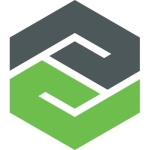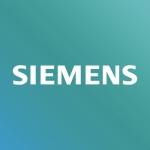JIRA features are agile planning and release notes. We heavily use the Service Desk to support our product customers, and we also provide support for our services customers via JIRA tickets with a time tracking plug-in so invoicing, project status, are available to everyone us and our clients, keeping us on the same page.
We are now using this system for all time tracking of internal non-billable projects, support contracts, development tasks and billable work. We can see our resources utilization and track how much time was spent on each client, which is good for invoicing, on Go2Group made products. This helps with our ROI on a product by product basis, and we even track our time off in this system.
It has enabled us to be on the same page with our client’s they can see the tasks and burn downs and exactly where their money is being spent. When we combine this with the Confluence Wiki, we now have a very robust Q&A and documentation page. We use it for sign-offs and online documentation. There is a history of what folks have done, and the information is radiated out in near real time. It is all there.
We can serve multiple clients, our own internal products, projects, and operations from one system cutting the resources needed to run these systems. Compliance is much easier to achieve, documentation, you need to sort out what needs to be displayed and reported in the formats you wish.
All in all, these tools, with little effort or cost, have allowed us to provide, what larger consulting and product firms struggle to provide due to legacy products/system/acquisitions, and compliance.
A more enhanced Service Desk module, with support for more types of alarms and the like.
The product is very easy to download, and install. Once downloaded, you just click next, OK, then viola! You are a newly minted JIRA Administrator, it is too easy. Teams, company data, and processes end up growing from grass roots movement before management realize it.
While Atlassian and TFS seem to be more of the toolsets that
companies are adopting, and they are great core ALM stacks to build
upon, you are still going to need tools from other vendors for most
environments. For instance, you have more strenuous support desk needs,
there is ServiceNow. If you make cars, boats, aeroplanes, trains, etc.,
you will most likely need IBM Rational DOORS. High end testing is still the domain of HP ALM/QC. Aerospace higher-end agile planning, you could look at JIRA Agile or VersionOne, or Rally. Embedded C, etc.
To
summarize, MS TFS and/or Atlassian (maker of JIRA) are good core ALM
stacks to run your shop on. The remaining issues are generally around
how to integrate other systems to TFS or Atlassian, and also, how to
migrate to TFS/Atlassian.
We are a heavy user of the Atlassian tools and are a reseller. We do VAR work for other competing ALM solutions as well, notably Microsoft, IBM, HP, Perforce, etc. This is just the toolset we have grown into.
Then they look into the systems and realize what risks there are and are usually slow on the uptake to designate these systems as Class A or B critical systems. They may be surprised at how many individual systems have sprouted across their organizations. You can find yourself in an organization with multiple JIRA instances due to the grass roots nature of adoption, with dozens of workflows and hundreds of custom fields in each instance.
It can be a lot of work to pull these together under compliance and DevOps. Would be much easier to accept these tools as mission critical, or at least realize their importance, and grow them correctly.















I completely agree with you about its administration being easier. Especially since we grant Admin access to a very small group. We (PMs) end up having to work with many groups that aren't even our own and provide training where necessary.